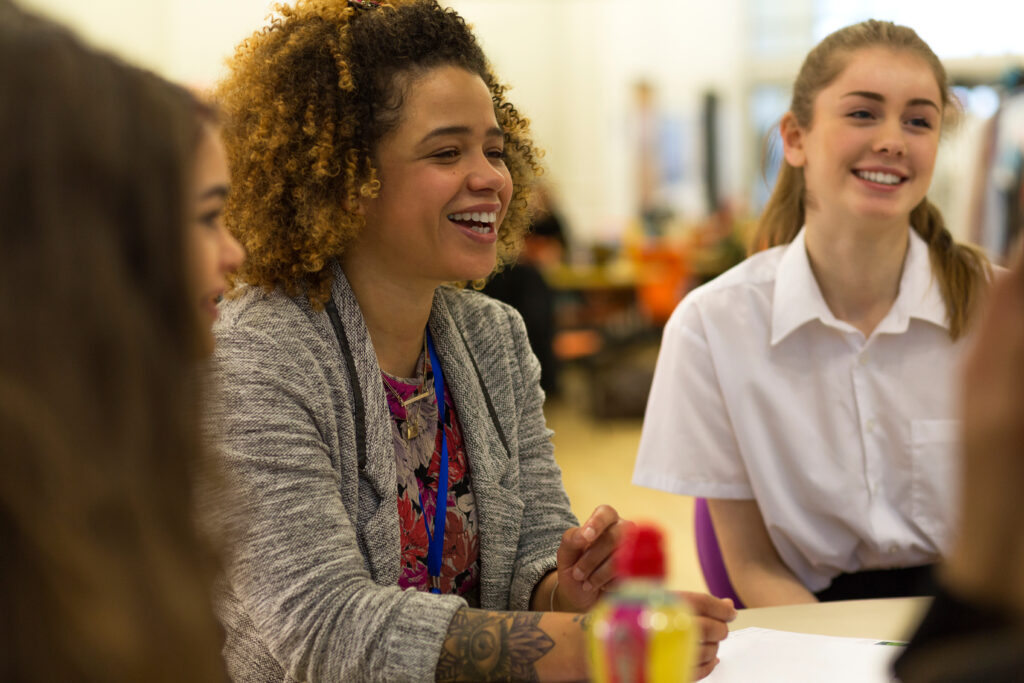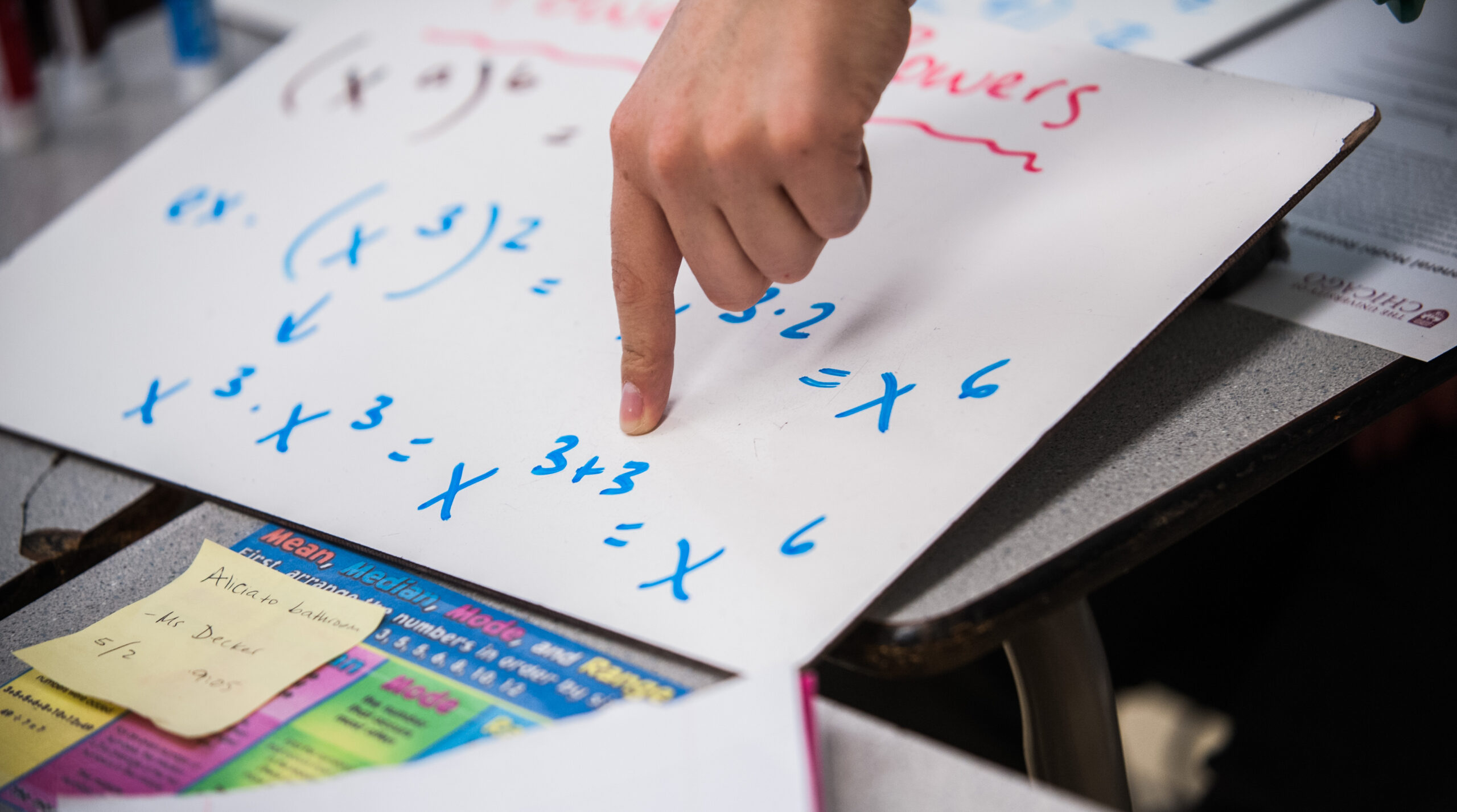
About Us
Public education has never been more critical to advancing economic mobility and tackling our cities’ largest challenges.
But America’s current education system is failing to give students – particularly students of color and the most economically disadvantaged – the foundation they need for future success. In large part, that’s because of how we generate evidence about what works. Often, education research is done to districts and not with districts, therefore disconnected from the real-world challenges students, teachers, and school leaders face. That needs to change. Policies and programs must be designed in partnership with schools, rigorously tested in real classrooms, and built to scale in cities nationwide.
By the Numbers
Our first 12 years have focused on designing, pilot-testing, and scaling policies with our government and NGO partners across Chicago. In the next phase of our work, we seek to apply key lessons learned and aspire to have national and international impact.
The Education Lab partners with school districts to design, test, and scale programs to ensure all students have the opportunity for future success. By generating cutting-edge evidence in a real-world setting, our insights are not theoretical; they are designed to be applied in the classroom and to reach students at scale – translating into maximum impact for students nationwide.
The Education Lab’s core values are essential to our work and drive our mission to support all students.
Service
We work to create impact at scale for residents of America’s cities, especially for those facing the most severe implications of inequality and racism. We conduct research to meet the highest standards of quality and rigor, and we share our results broadly to generate measurable social good in communities.
Integrity
We understand that it is a privilege that our partners entrust us with data. As a result, we hold ourselves accountable for clear and honest reporting of our research and analysis, even when difficult for key partners or ourselves to hear. We deeply appreciate that each data point represents an individual person, so we conduct our work with the care that they deserve.
Inclusivity
We believe our work has the greatest impact when we incorporate diverse perspectives from outside and inside our organization. We value the voices of people with on-the-ground experience to offer critical insights to help inform solutions. We strive to create a sense of community and belonging for all staff.
Collegiality
We recognize that reciprocal relationships are key to a positive, productive, and team-focused work environment, in our own organization, with our partners, and with respect to the people we strive to support. So, we push ourselves to communicate more effectively, listen more intentionally, and have difficult conversations when needed.
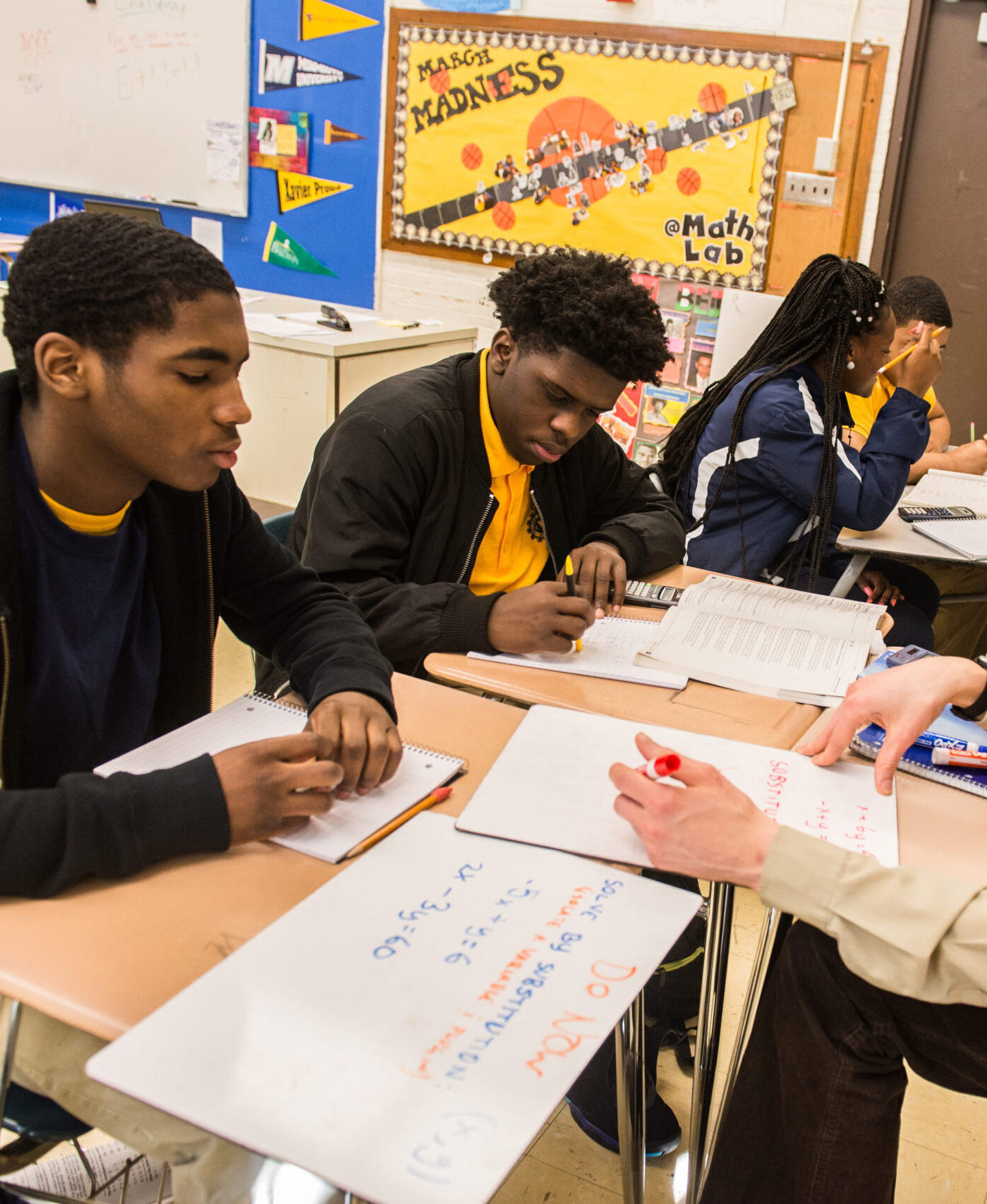
What We Do
Topics
Mentoring and Counseling Interventions
We partner with community-based organizations to identify and evaluate trauma-informed interventions, including mentorship and counseling programs, that surface and strengthen skills in students that help them navigate difficult situations and succeed in school.
Personalized Learning
We work in partnership with school districts to understand whether and how we can scale high-impact tutoring programs to reach tens of thousands more students without compromising effectiveness.
Post-Secondary Pathways
We work in partnership with CPS and college success providers in Chicago to identify and co-design supports to support CPS students to achieve their post-secondary aspirations in college and career.
Restorative Practices
We partnered with CPS to evaluate the effects of RP on student behavior and provide a model of classroom management and a disciplinary system that works for interested school districts across the nation.
Student Re-Engagement
We work with school communities to reach youth who have become disengaged from school, reconnect them to school programming, and ensure they have the trauma-informed supports needed to thrive.
Methodologies
Capacity Building
We help our partners maximize their impact by providing technical assistance and evidence-based recommendations to inform program design, implementation, and scaling.
Policy and Program Evaluation
We work with government agencies and community-based partners to rigorously evaluate programs that aim to ensure all students have the opportunity for future success.
Randomized Controlled Trials
Randomized controlled trials are the gold standard in research, driving some of the most important advances in fields like technology and medicine—and we’re using them to do the same in education.
Who We Are
Our team is made up of experts with backgrounds in data and behavioral science, K-12 education, public school administration and management, government, and more, all with a shared passion for making our education system work for all students nationwide.
Thank you for your interest in career opportunities with the University of Chicago Education Lab! We regularly seek passionate, data-oriented, public service-minded individuals to join our team.
Thanks to our unique data-sharing agreements with public sector agencies and community partners, including Chicago Public Schools, the Education Lab can collect and analyze data to identify trends in education and, importantly, partner more effectively at designing and testing scalable solutions.
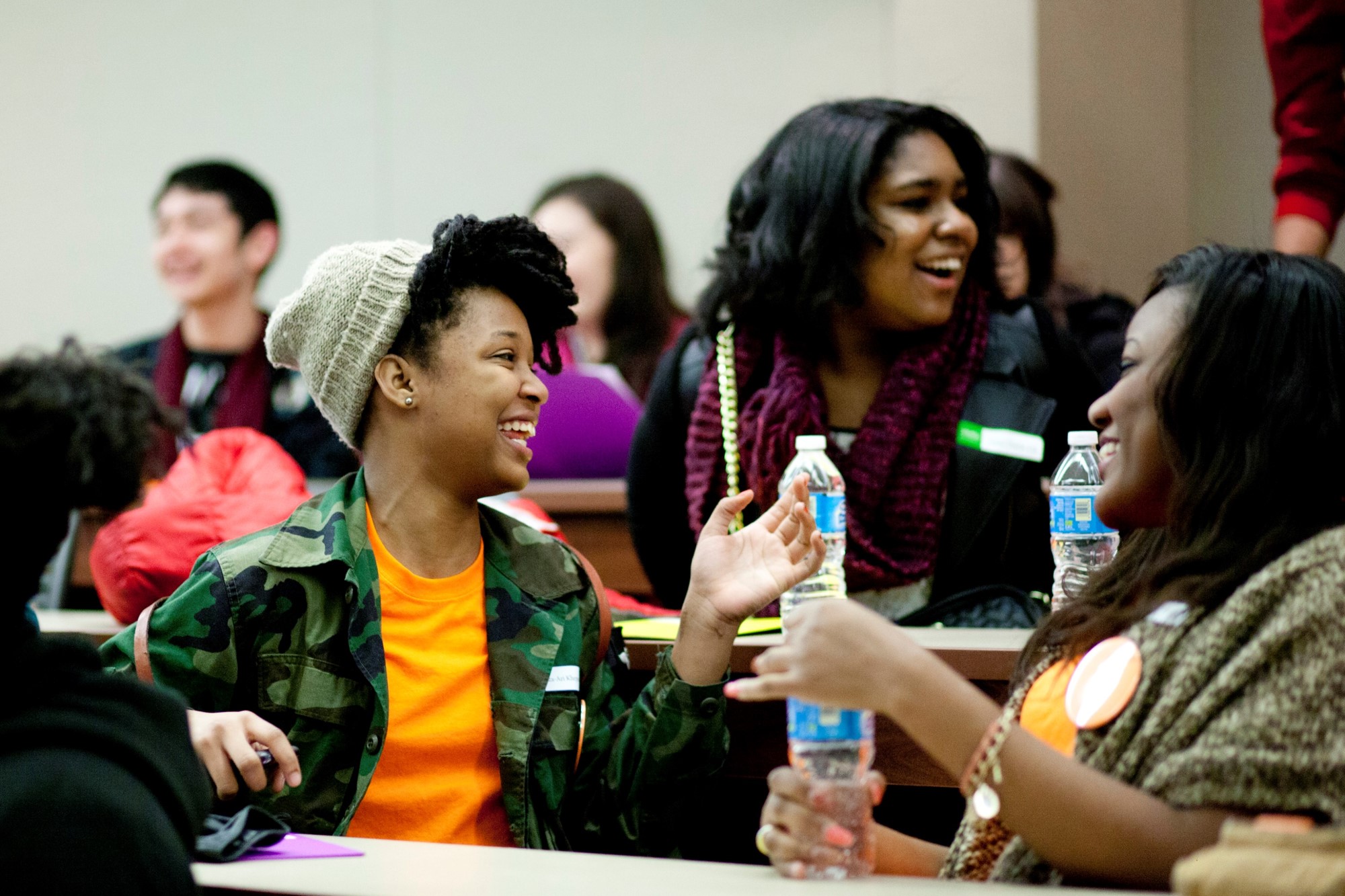
Our History
The Education Lab was founded in 2011 as a sister organization to the University of Chicago Crime Lab. For over a decade, we have partnered with school districts to design, test, and scale programs to ensure all students have the opportunity for future success. To date, our research has helped to generate more than $120 million in public investment for highly effective, evidence-based programs that support students furthest from opportunity.
Timeline
Published preliminary results from the Personalized Learning Initiative (PLI), which found that in-school high dosage tutoring is leading to large and positive effects on student learning in math – even when delivered in the aftermath of the pandemic and in diverse academic settings.
Announced the launch of our Personalized Learning Initiative (PLI) in Miami-Dade County Public Schools (M-DCPS). The partnership brings a high dosage math tutoring intervention to Miami-Dade students recovering from the education crisis caused by the COVID-19 pandemic.
Released results from a study of a high-dosage tutoring model–what we call “Saga Technology”–which found that substituting some tutor time with educational technology can reduce costs by one-third and halve the number of tutors needed without compromising effectiveness.
Our Personalized Learning Initiative was featured in the University of Chicago’s Inside the Lab series, which features researchers working to solve some of the world’s toughest problems.
Released findings from the study of Youth Guidance’s Working on Womanhood (WOW), an in-school, trauma-informed group counseling program for high school girls.
Under the Personalized Learning Initiative, we generated lessons learned from the 2022-23 school year to strengthen tutoring and better support more students.
Released findings from our study of the impacts of restorative practices in Chicago Public Schools, which saw a 35 percent reduction in arrests in school and a 15 percent reduction in out-of-school arrests for students at schools that implemented restorative practices and policies.
Expanded the Personalized Learning Initiative partnerships to include Fulton County (Georgia) and the New Mexico Department of Education, in addition to Chicago Public Schools.
Began a design and data analysis partnership for Back to Our Future, a program launched by CPS and the Illinois Department of Human Services, Breakthrough, UCAN, and Youth Advocate Programs Inc., to support disengaged youth at the highest risk of trauma exposure.
Launched the Personalized Learning Initiative, a multi-year partnership between our research team, school districts, and tutoring providers to help districts scale personalized academic supports.
Partnered with Saga Education and Chicago Public Schools and the New York City Department of Education to evaluate its blended learning model which used educational technology to double the number of students served by high-impact tutoring while cutting costs by 30%. Results will be published in 2023.
Began working with the Chicago Public Schools’ Office of Social and Emotional Learning and Alternatives, Inc. on a study of the restorative practices services the district had implemented since 2013. Findings were published in 2023.
Partnered with the Chicago Public Schools’ Department of Literacy to conduct a multi-year study evaluating the structured literacy program. Results will become available in 2025.
Launched the Chicago Student Success Initiative, a multi-year effort to work with Chicago Public Schools to identify systemic challenges for CPS Options Schools students and co-design solutions with Options schools, CBOs, and CPS partners.
Partnered with Chicago Public Schools and Youth Guidance to launch a study of Working on Womanhood (WOW), a school-based program that addresses the challenges facing girls in Chicago. Findings were published in 2023.
In partnership with CPS and Saga Education, launched a study of an early literacy, high-impact tutoring intervention for first graders in two Chicago Public Schools charter schools.
Partnered with Chicago Public Schools to provide Options Schools students with access to a high-quality education and the supports they need to succeed.
Launched a study of Chicago Public Schools’ Elevate, a whole-school personalized learning model implemented in over 25 low-income neighborhood schools. The study aims to understand how this model could impact academic and socio-emotional learning outcomes.
Provided guidance for the Mayor’s Mentoring Initiative, which delivered mentoring services to 7th to 10th-grade boys in areas experiencing high rates of gun violence. Project partners included Youth Guidance’s Becoming a Man program and 57 mentoring organizations.
Launched a design competition to identify a citywide, scalable, and homegrown solution to address gun violence among young Chicagoans.
Began a study of Choose to Change (C2C), a program implemented by Youth Advocate Programs, Inc. and Brightpoint (formerly Children’s Home & Aid), which connects youth impacted by violence with an intensive advocate, wraparound services, and trauma-informed therapy.
Based on results from a pilot randomized controlled trial, launched a second large-scale study of Saga Education in 17 Chicago Public Schools high schools on the South and West sides of Chicago. The results were published in the American Economic Review.
Partnered with the city, Chicago Public Schools, and Saga Education to evaluate Match Education’s high-impact tutoring in 12 neighborhood high schools on Chicago’s South and West sides.
Partnered with Chicago Public Schools to pilot and study a high-impact tutoring program inspired by Saga Education’s model in CPS’ Harper High School, which yielded promising results.
The Education Lab was founded as a sister lab to the University of Chicago Crime Lab.
Explore More
Our team has co-designed, studied, and scaled programs and policies in cities nationwide to support student engagement, accelerate student learning, and ensure that the most promising policies and programs reach as many students as possible.
Personalized Learning Initiative
The Personalized Learning Initiative is a moonshot to overcome pandemic learning loss and aims to bring high-dosage tutoring to students nationwide.
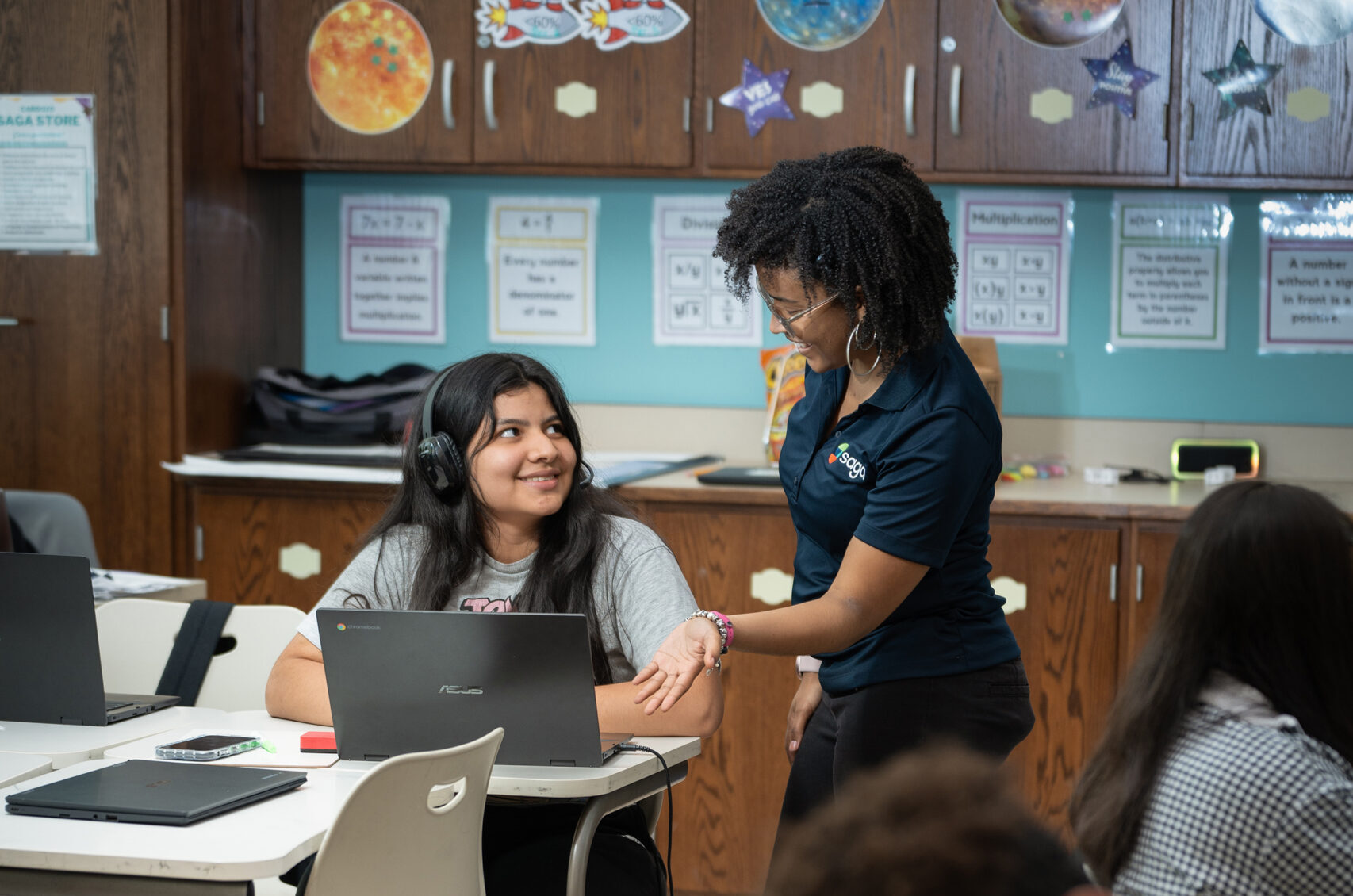
Working on Womanhood
In 2017, the University of Chicago Education Lab partnered with the Mayor’s Office, Chicago Public Schools and Youth Guidance to understand the effects of Youth Guidance’s Working on Womanhood program as part of the Mayor’s Mentoring Initiative.
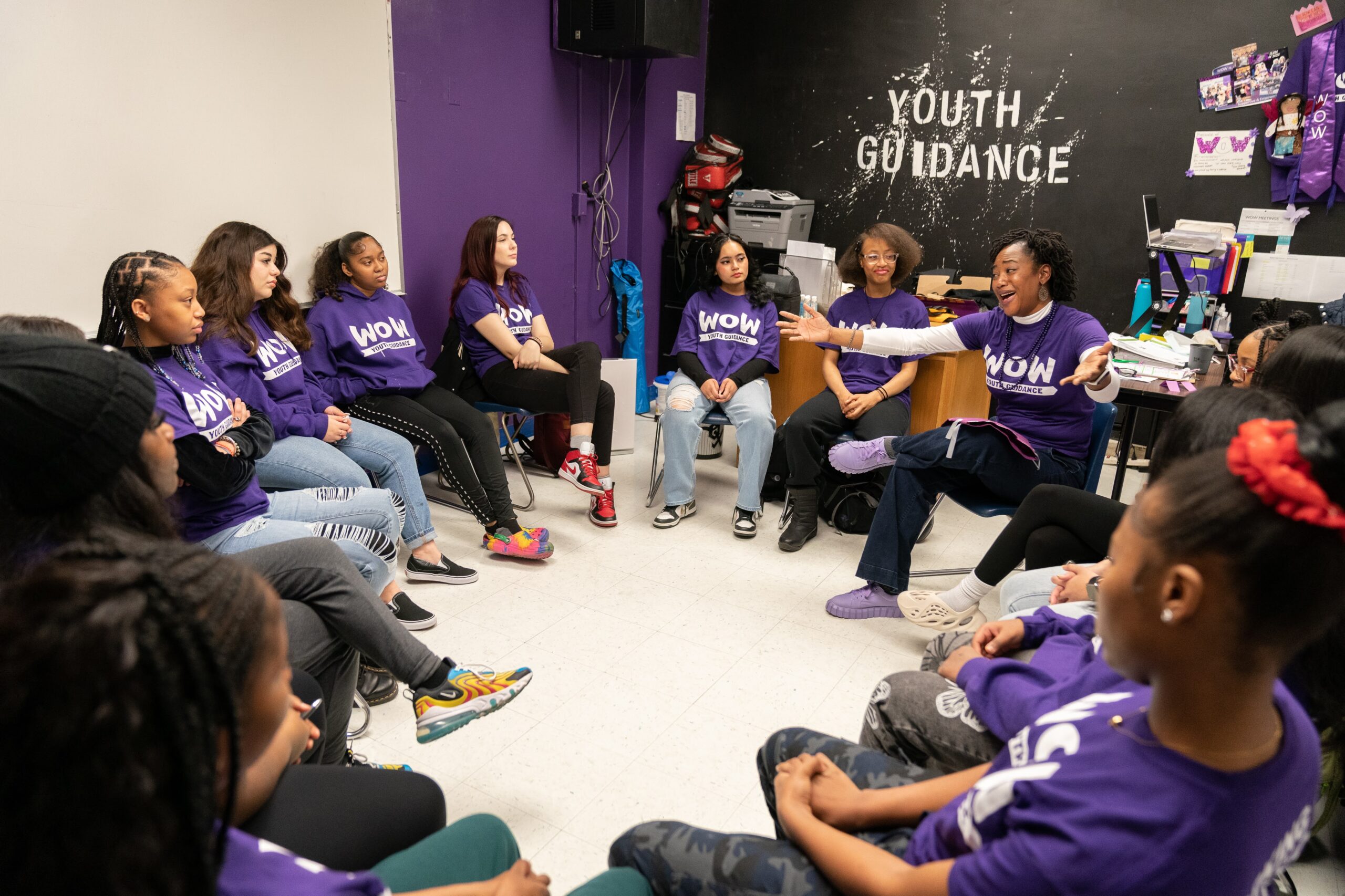
Back to Our Future (B2OF)
Back to Our Future (B2OF) is a state-funded, district-led, evidence-informed effort to re-engage disconnected students at an elevated risk for gun violence involvement.
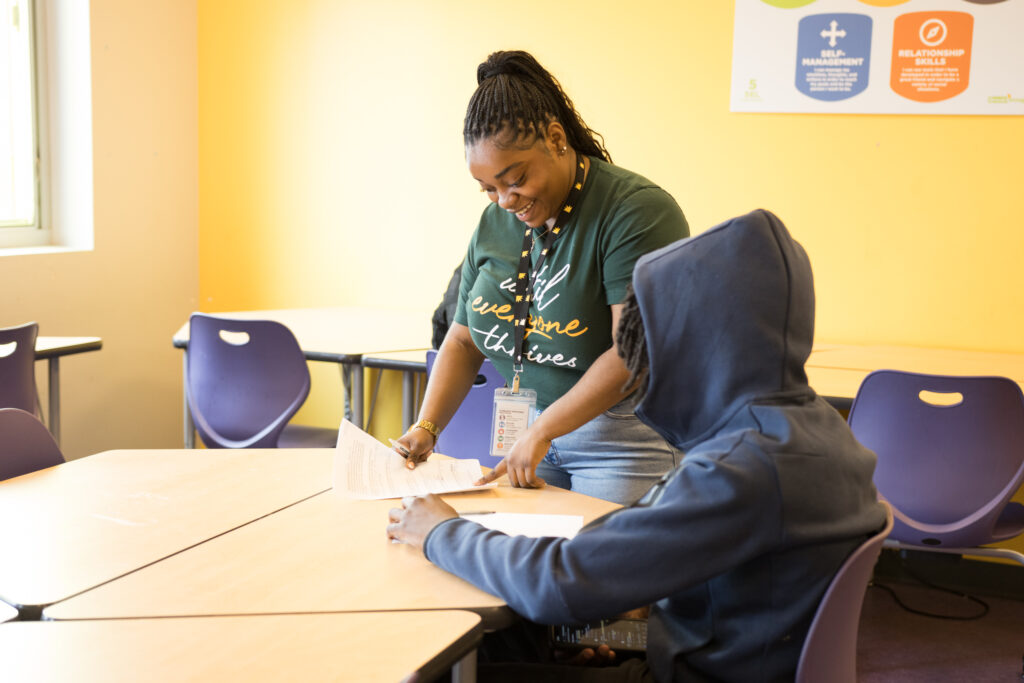
Becoming a Man
Youth Guidance’s Becoming a Man (BAM) uses insights from behavioral science to help youth navigate high-stakes situations.
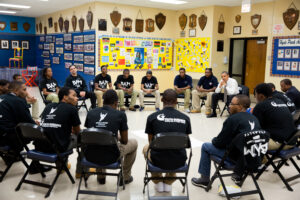
Choose to Change®
The Choose to Change® program combines trauma-informed therapy with wraparound supports and aims to reduce youth violence while improving educational outcomes outside of an institutional setting.
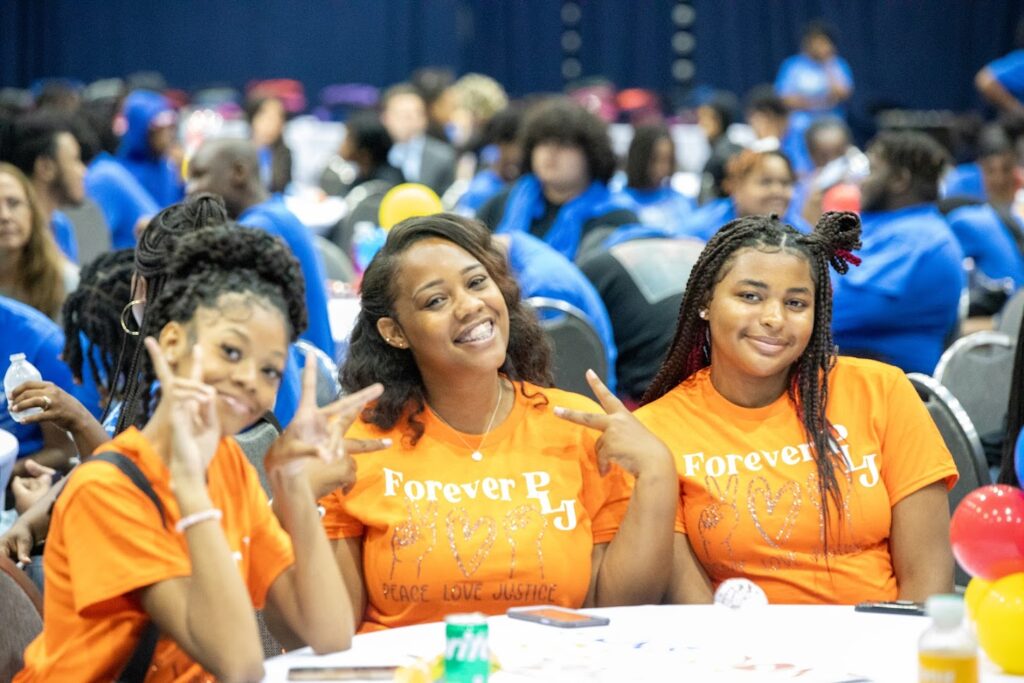
Restorative Practices
In partnership with Chicago Public Schools, the Education Lab evaluated the effect of restorative practices implemented in high schools across the district.
